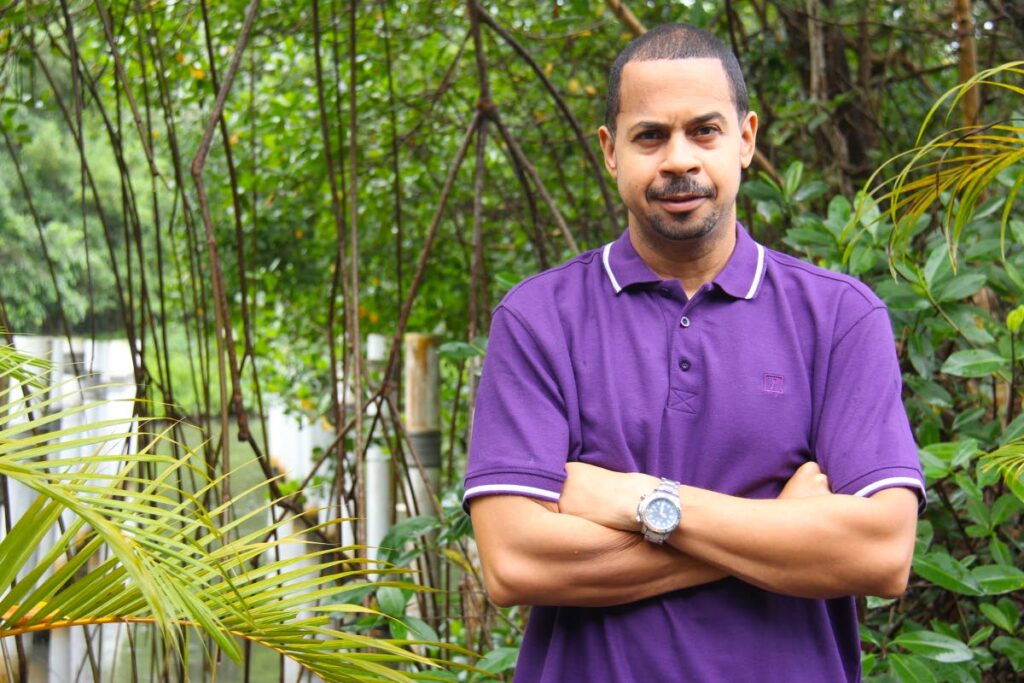More in the pelau than the peas

PAOLO KERNAHAN
IF STICKER prices at the grocery and prices on the menu at your favourite restaurant trigger you, you're likely to have, as my mother used to say, a dusty time if/when spiking gas prices arrive.
Last week I saw a video recording of some people chopping it up in a radio studio. One of the announcers was holding court with a pivotal question, "Why it is when you go in the grocery and you see a product at one price this week and when you go back the next week the price raise, but you still buying? Why we so?"
That proposition puts the ball in the court of the consumer to bend food pricing to their will. The thinking, presumably, is if you "leave it dey" the predatory groceries will either have to drop prices or "t’row it way."
I'm all for consumer advocacy and people power, but that radio announcer's thought process is a staggering oversimplification of a vexing problem. Then again, this is Trini talk radio, so not exactly a bastion of erudition.
Another recent price increase that sent the public tumbling into apoplexy was KFC's $2 surcharge on condiments. The reaction was swift and spicy, because you don't mess with a man's religion. Trinis smother their Kentuckry with a technicolour slurry of ketchup, mustard and pepper sauce. Now that the Colonel's policy has shifted from "condiments on request" to "condiments are extra," devotees of the Kentucky fried faith are openly blaspheming against the teachings of the "cripsy"-skin gospels.
The franchise's prices were increased only recently. This latest adjustment is being interpreted as one-per-cent greed. It's clear from some of the conversations online and protests over food prices that many citizens have little understanding of the global factors affecting their pantry purchases and takeaway bills.
There is, though, another piece to the economic puzzle that's been conveniently lost in the carpet. We've forgotten that prior to the advent of covid19 the country was in the throes of economic stagnation, the effects of which began to affect us, in earnest, as far back as 2014.
The Government benefits immeasurably from a fairly widespread economic illiteracy in the population. Citizens are pointing fingers at the Supermarkets Association, the money-obsessed upper crust and, in general, an ill-defined business/bogeyman into whom we pour all our enmity.
This administration has no hand in the Russia-Ukraine conflict and all its attendant economic fallout. Rising prices resulting from the ongoing war and residual impacts of the pandemic are beyond the reach of the Government's minus touch.
However, there has been consistent mismanagement of the economy in the life of a depression that's going on eight years. Schizophrenic fiscal policy hinged heavily on austerity, and driving up debt is the principal preoccupation of this Government.
Cutting here and cutting there, coupled with borrowing without any strategic planning, put us on the trajectory we're living in now, long before covid19 and Putin changed the world. The fallout of outside events has simply exacerbated, accelerated the inevitable – economic necrosis. Rising food prices are just one aspect of our economic woes.
Additionally, while food independence isn't feasible for TT, we could certainly do more to lean less on imported foods. A largely defunct Ministry of Agriculture, though, presides over an informal, helter-skelter food-production sector that gives us the three-suck, $5 orange – in the Caribbean.
The Government can't influence external factors that lead to rising food prices. However, it has the responsibility to foster an environment that supports the growth of a diversified, export-oriented economy that looks outward to earn income. This country remains defiantly energy-focused. There is also the duty to ensure crime and insecurity, which significantly affect business costs are held in check.
No country in the world can anticipate the fallout of war, disease, famine, etc. It's the responsibility of leadership to actively create conditions that breed resiliency. Since it is more difficult to detect the multiple failures that lead inexorably to an orphaned economy, the villain is harder to spot.
We actively pardon a government that has doubled down on a waning energy sector and sat in wait for buoyant energy pricing to steady the ship. Even though that pricing is now here, our production is too low to even the keel.
In TT we can never see the forest for the trees, never see more in the pelau than the peas.
Consequently, we blame Putin, covid19, KFC and the doubles vendor who "nut seeing me in life ahgain."

Comments
"More in the pelau than the peas"